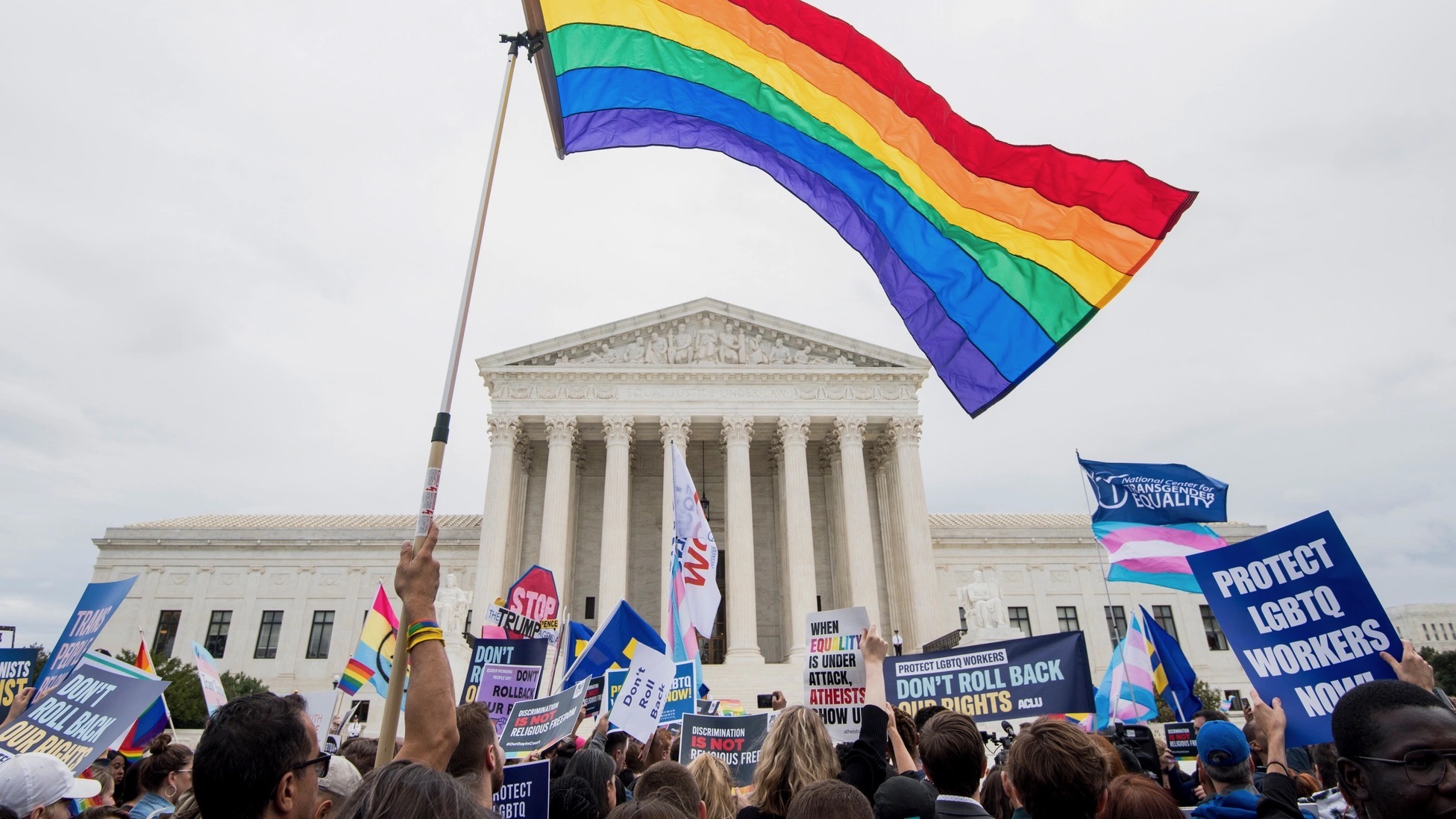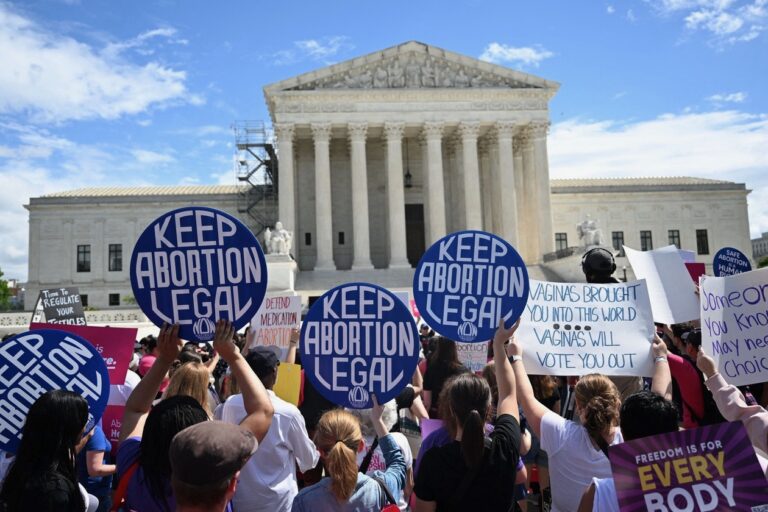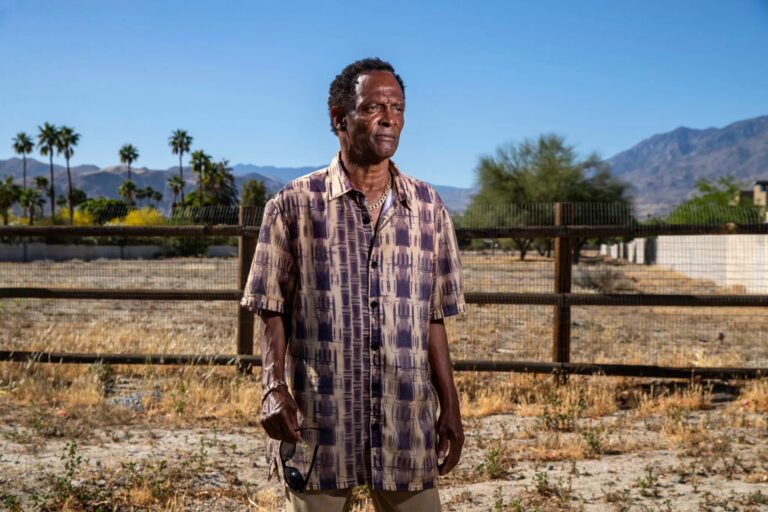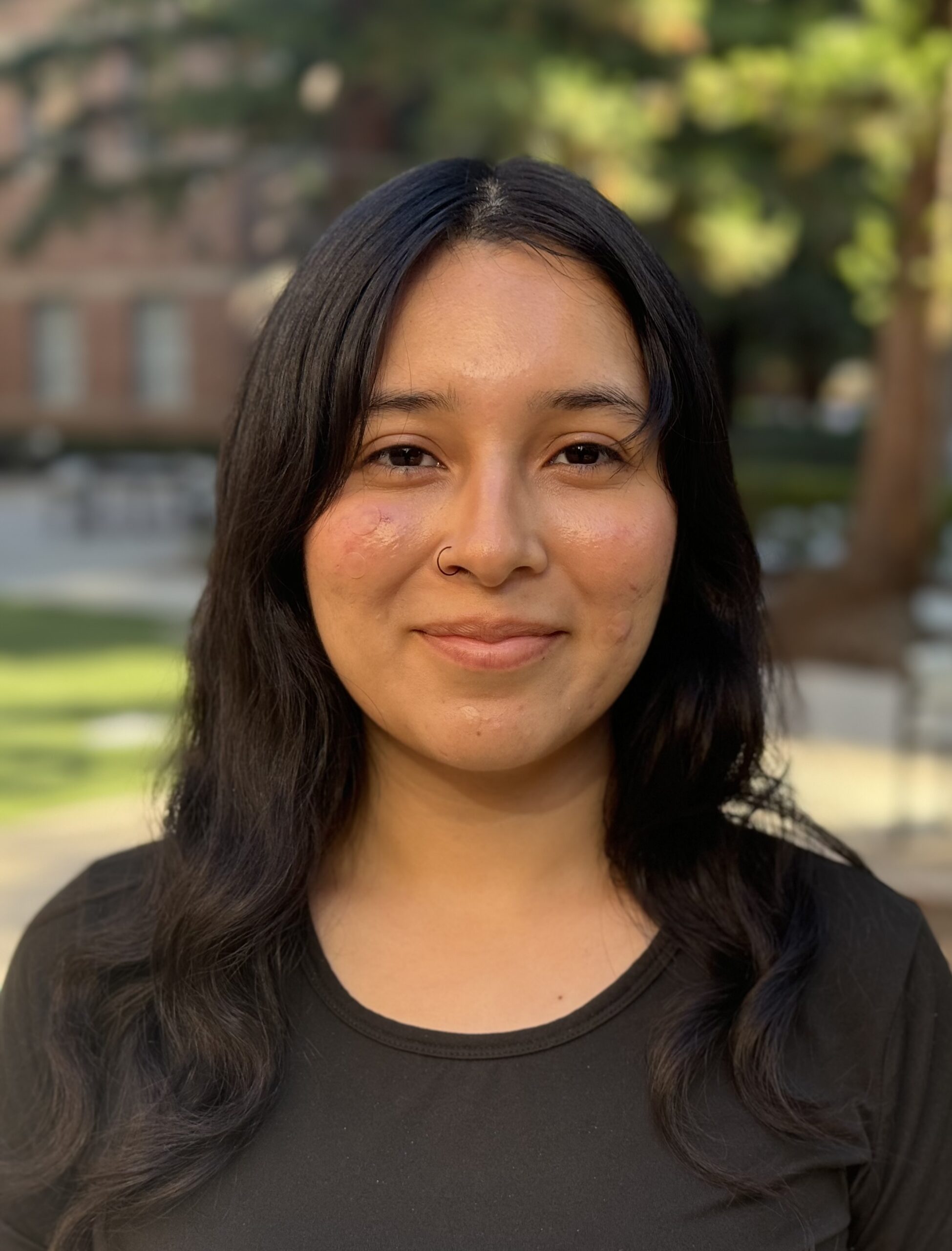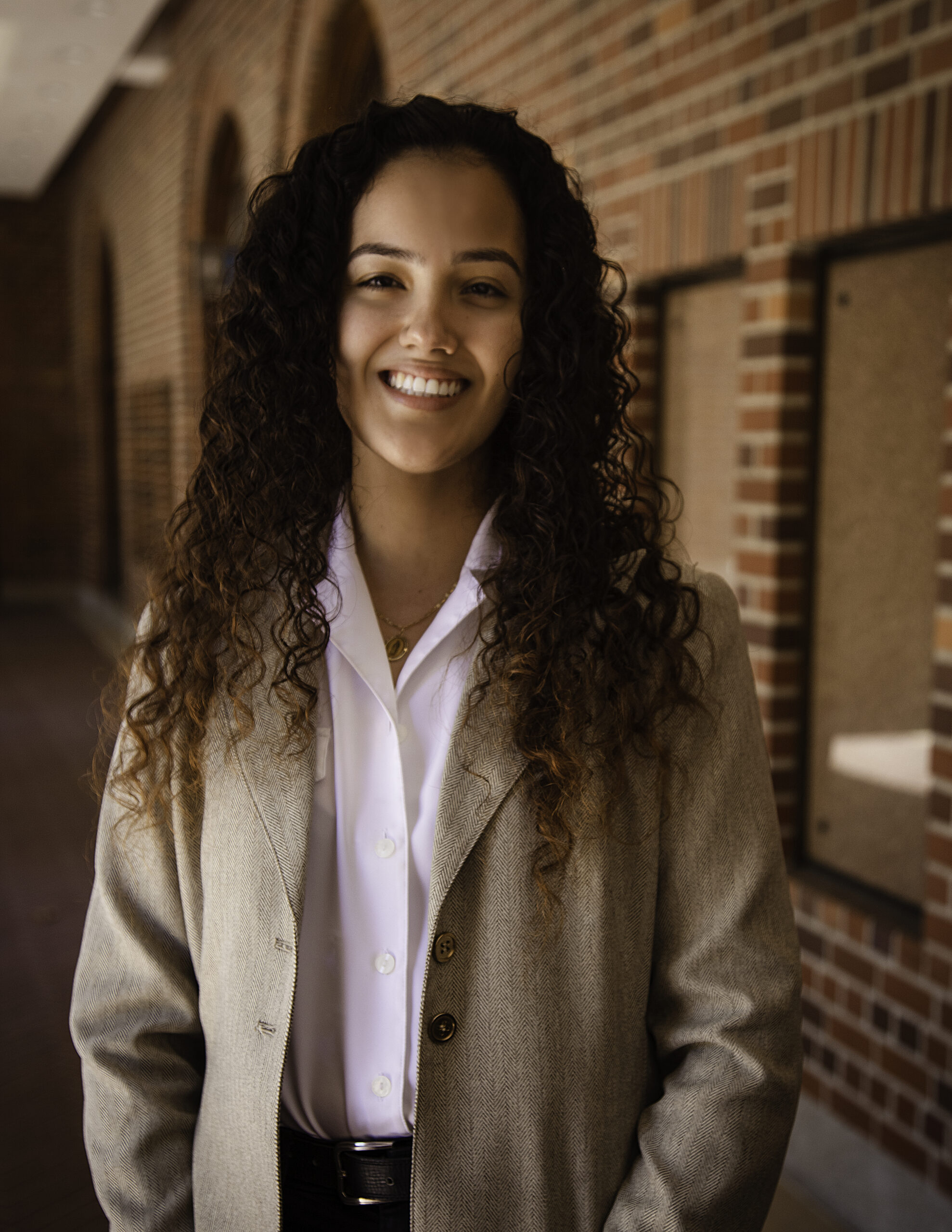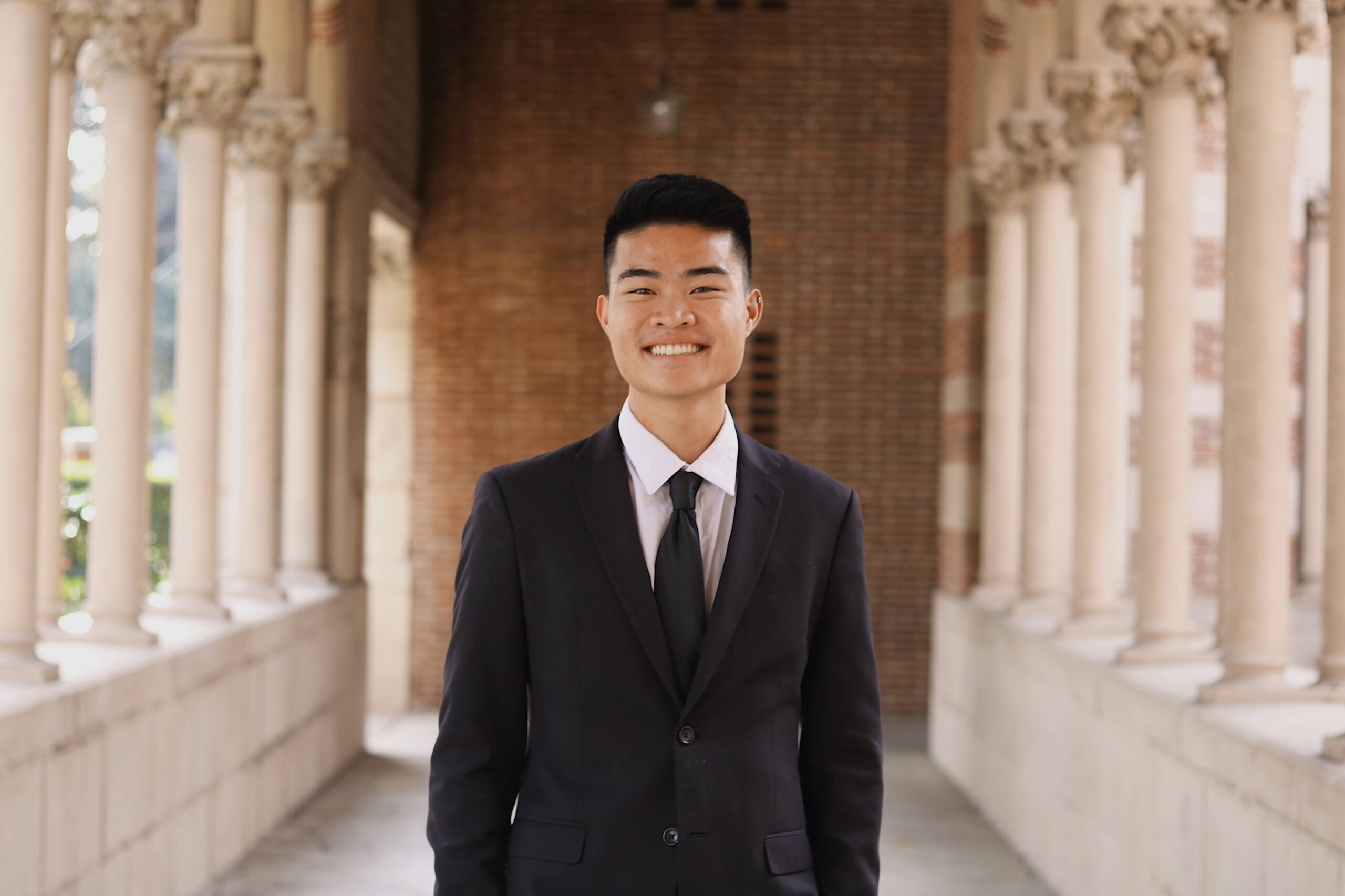How to process second-hand trauma
Watch This
This webinar aired live on June 18. Watch a recording here >
Lawyers + activists have a plan to restore and expand abortion rights
More Of This
A new coalition of abortion-rights groups is marking the second anniversary of the fall of Roe v. Wade with a pledge to spend $100 million to restore federal protections for the procedure and make it more accessible than ever before.
In plans shared first with POLITICO, groups including Planned Parenthood, the ACLU and Reproductive Freedom for All are banding together to form Abortion Access Now — a national, 10-year campaign that will both prepare policies for the next time Democrats control the House, Senate and White House, and build support for those policies among lawmakers and the public. At a private event Monday evening in Washington, they will pitch a group of influential progressives on going on offense at a time when abortion is outlawed in a third of the country.
“Dobbs was a really devastating outcome, but we’re going to win back our rights much faster than they think,” Mini Timmaraju, the president and CEO of Reproductive Freedom for All, said in an interview. “We’re not going to let the anti-abortion extremists define this moment. We’re coming for them and we’re going to make sure that they become increasingly irrelevant.”
Read the rest on Politico
Beware of the growing legal movement to roll back gay rights
Less Of This
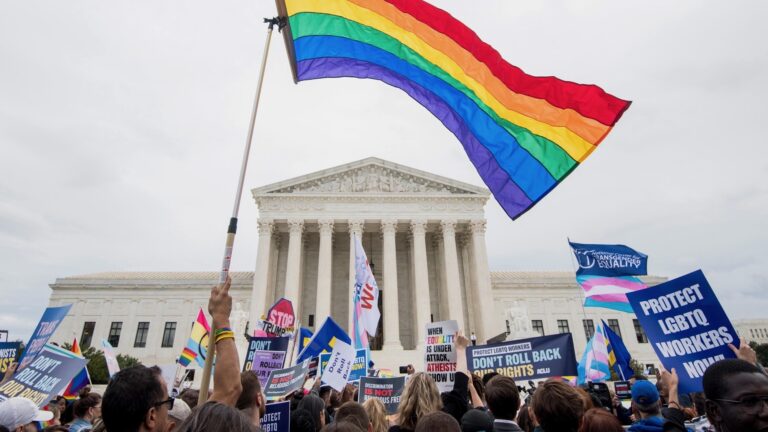
What happens to a dream undone? For many Americans, the progress of gay rights over the past quarter century was one of the country’s greatest achievements. Even as social change on other fronts stagnated or reversed, LGBTQ Americans gained new acceptance and protections. In 2002, Gallup found that just 38 percent of Americans believed that homosexual behavior was morally acceptable. Barely more than a decade later, in 2015, that number was 63 percent; that year, the Supreme Court granted same-sex couples the right to marry. This change was celebrated by its beneficiaries, of course, and by progressives, but also more broadly. By 2022, 55 percent of Republicans supported same-sex marriage, according to Gallup—a huge leap from just 22 percent 10 years earlier.
Now alarm bells are ringing for same-sex marriage and LGBTQ rights in general. A new Gallup poll shows that Republican approval of homosexual rights has dropped from 56 to 40 percent in two years, and that support for same-sex marriage is down to less than half, at 46 percent. Liberal justices on the Supreme Court warned in a dissent last week that their colleagues are chipping away at the right to marriage. Over the past four years, Republican policy makers have mounted a campaign against transgender rights and discussion of homosexuality in schools, but the result appears to be a wider backlash against LGBTQ rights.
Read the rest on The Atlantic
The case for reparations in undeniable
Say It Louder
Alvin Taylor still remembers the sight each day as he’d return from school, of more houses in his neighborhood being burned to the ground. He was about 8 years old when the fires came for his home. Fenita Kirkwood recalls listening, as a 9-year-old girl, to her father arguing with men who had come to their doorstep to insist they had to leave. “That big yellow bulldozer pulled up in front of our house on a Friday,” remembers Lawrence Williams, who ran inside to fetch his mother. “I came in later and she was in the kitchen crying, asking God, ‘What are we going to do?’”
They were all children at the time, living in Section 14, a small plot of tribal land near downtown Palm Springs, California, in the mid-1960s. The city itself remained strictly segregated, and so their parents had helped to build a sort of shantytown out of trailers, wooden shacks, and small concrete dwellings—a mixed-race community that housed many of Palm Springs’ working-class Black residents. “We built a thriving community. There were businesses, churches…It was an actual village where people helped raise each other’s children, and we borrowed eggs from next door,” explains Pearl Devers, who was 12 years old when a change in federal law eased development restrictions on federal land—meaning there was significant money to be made by clearing residents from it.
Read the rest on Mother Jones
Transgender Law Center hiring Legal Fellow
The position is within the Border Butterflies project and will provide direct legal support to LGBTQ asylum seekers living in the United States.
The Border Butterflies Project aims to support LGBTQ asylum seekers at the US-Mexico border with legal, humanitarian, post-detention, and organizing support. This position, which can be performed remotely anywhere throughout California, will be hosted by Transgender Law Center.
Apply >




